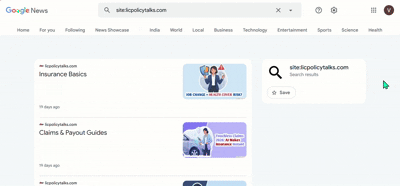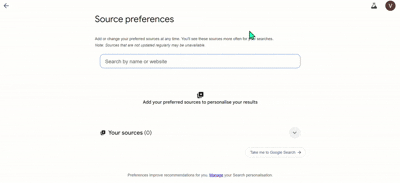
Hi friends! Feeling the heat from the ongoing EU Digital Markets Act Compliance enforcement? You’re definitely not alone. While the July 2025 Review was the big wake-up call that ended the grace period, the reality of 2026 is setting in: the European Commission isn’t just watching anymore—they are acting. Honestly, looking at the recent wave of non-compliance investigations, this has shifted from a “regulation headache” to a survival drill for tech giants like Google, Amazon, and Meta. You know what? We’ve updated this guide for the 2026 landscape: revisiting those key deadlines, refining your practical checklists for the audit phase, and looking at the penalties that are now very real possibilities. Whether you’re in compliance, legal, or tech leadership, this is your updated roadmap for the continuous enforcement era. Let’s navigate this new normal together!
Updated 2026 guide to EU Digital Markets Act Compliance. Understand post-2025 enforcement, ongoing gatekeeper rules, active penalty risks, and practical audit steps for tech companies operating in Europe.
Understanding the EU Digital Markets Act in 2026
Let’s look at where we stand now, shall we? The EU Digital Markets Act has fully transitioned from a “bold move” to the law of the land. Honestly, seeing the investigations launched against Alphabet and Apple, we know the “grace period” is officially over. The DMA targets “gatekeepers”: companies controlling core platform services. You know what’s become clear in the last year? Unlike traditional antitrust laws that react to harm, the DMA is now actively dictating product roadmaps. Companies meeting the thresholds (€7.5B+ European turnover, 45M+ monthly users) are now living under a microscope. EU Digital Markets Act Compliance is no longer about preparation; it’s about daily survival.
The European Commission designated the first gatekeepers back in September 2023—including Alphabet, Amazon, Apple, ByteDance, Meta, and Microsoft. These companies have now passed their initial implementation windows. The EU tech regulations have successfully forced smaller players into the conversation, but the friction is palpable. Core objectives like stopping self-preferencing and enabling interoperability are being tested in real-time. Digital Markets Act requirements have forced uncomfortable changes—like Apple opening up to third-party app marketplaces. It’s that significant.
Why does the 2026 timeline matter? The July 2025 DMA deadline was the final “implementation” milestone, but 2026 is the year of the “Audit & Fine.” Now, gatekeepers must submit updated compliance reports and face the music on their initial solutions. EU competition law updates through the DMA have empowered regulators with tools they are actually using: fines up to 20% of global revenue for repeat violations are on the table. The DMA enforcement guide timeline has shifted from “setup” to “scrutiny.”
The DMA represents Europe’s operational “digital sovereignty.” Unlike GDPR which focused on data privacy, the DMA attacks market structure. Gatekeepers are now proving fairness through live audits. EU Digital Markets Act Compliance demands evidence-based proof—regulators are looking at your API latency and data portability success rates. Digital Markets Act penalties are no longer threats; they are pending line items on balance sheets. This legislation has rewritten the rules—and 2026 is the year we see who actually read them.
Key DMA Compliance Deadlines: The 2026 Recap
Mark your calendars, folks—or rather, check your logs, because we are deep in it. The first critical deadline was March 2024, when designated gatekeepers submitted their initial blueprints. Missed that or fudged it? You’re likely already under investigation. Then came September 2024, where functional compliance was tested. EU Digital Markets Act Compliance has proven it isn’t theoretical—regulators have already sent back “working solutions” that weren’t working well enough. EU gatekeeper rules require verifiable, seamless technical changes, not just “beta” features.
January 2025 brought the Core Platform Service Audit, where independent auditors validated messaging apps and social networks against Digital Markets Act requirements. We saw auditors examining API documentation and data flows with a level of granularity many teams weren’t ready for. DMA enforcement guide timelines showed zero tolerance for “malicious compliance”—introducing friction to discourage users from switching was flagged immediately. EU tech regulations demand genuine market opening. The July 2025 DMA deadline was the ultimate D-Day, and now we are living in the aftermath.

Since passing July 2025, companies are now cycling through the mandatory compliance pillars: 1) Maintaining real-time data access 2) Ensuring stable third-party interoperability 3) Proving ranking neutrality in quarterly reports 4) Supporting alternative app installations 5) Verifying ad tools 6) Executing data portability 7) Notifying the EC of all acquisitions. EU Digital Markets Act Compliance has become a permanent department—Microsoft’s 300+ engineers are still busy. Digital Markets Act penalties are now the primary risk metric for 2026/2027 planning.
Post-July enforcement means continuous compliance validation. The European Commission is conducting those feared “dawn raids” to inspect algorithms. EU competition law updates empower regulators to demand immediate algorithm explanations. DMA compliance deadlines are now recurring annual events. Companies treating the past July 2025 date as the finish line are already falling behind. Your technical documentation must be audit-ready 24/7—this is your new normal.
Navigating the EU Gatekeeper Rules in Practice
So what exactly is getting flagged? The prohibitions are active, and the “what not to do” list is generating fines. First up: self-preferencing is under heavy fire. Amazon can’t boost its products, and Google’s flight results are being watched like a hawk. EU Digital Markets Act Compliance demands algorithmic neutrality—and we’ve seen regulators ask for the specific weighing factors in ranking algorithms. EU tech regulations also strictly enforce the ban on combining personal data. If you are still blending Instagram and Facebook data without a clear “opt-in” screen, you are non-compliant.
Interoperability requirements are proving to be the technical nightmare we predicted. Messaging apps like WhatsApp have had to open to rivals, but the friction is high. Digital Markets Act requirements regarding security vs. openness are the main battleground. DMA enforcement guide documents clarify that “fair, reasonable, and non-discriminatory” (FRAND) access is non-negotiable. EU competition law updates are tearing down walled gardens, but the rubble is messy.
Data access obligations are creating new competitors. Hotels are successfully pulling Booking.com data, and Amazon sellers are using exportable metrics to optimize off-platform sales. EU gatekeeper rules prohibit blocking users from reaching businesses outside the platform. Digital Markets Act penalties will apply retroactively if audits find you blocked these flows in late 2025. DMA compliance deadlines now require functional data pipelines that don’t break under load.
Advertising transparency has transformed the ad-tech stack. Gatekeepers are providing independent verification tools, but advertisers are asking for more granularity. EU Digital Markets Act Compliance requires clear pricing, and we are seeing disputes over “hidden fees.” July 2025 DMA deadline preparations laid the groundwork, but 2026 is about refining these ad-tech stacks to ensure complete data separation is actually happening. Gatekeepers must fundamentally maintain these interconnects—those who treated this as a one-time patch are facing system failures.
Building Your DMA Compliance Checklist for 2026
Where do we go from here? If you’re still scrambling, your tiger team needs to be permanent. Legal, engineering, product, and data science must collaborate daily. Document your core platform services against the Digital Markets Act requirements continuously. Update your data flow diagrams—if you launched a feature last month, is it mapped? EU Digital Markets Act Compliance requires dynamic mapping. Identify where you combine data and ensure your consent mechanisms haven’t “drifted” back to old habits.

Technical implementation demands API maintenance. Secure interoperability interfaces for messaging and social services need to be patched and upgraded alongside your core product. DMA compliance checklist essentials for 2026 include: 1) Stress-testing third-party installation frameworks 2) Monitoring business data pipelines for downtime 3) Auditing ad verification tools 4) Updating ranking parameter documentation 5) Retesting user consent flows. EU tech regulations require updated API documentation—keep it fresh.
User experience redesigns are constantly evolving. You’ll need to ensure your “choice screens” aren’t leading to user fatigue or designated as “dark patterns.” EU gatekeeper rules mandate frictionless switching. Digital Markets Act penalties apply for interface designs that subtly discourage compliance options. DMA enforcement guide principles favor simplicity.
Ongoing monitoring systems are your safety net. Implement automated compliance testing for: 1) Ranking neutrality 2) Data separation 3) Interoperability performance 4) Consent validity. EU Digital Markets Act Compliance requires quarterly internal audits. July 2025 DMA deadline was the start; 2026 is the marathon. Document every compliance decision exhaustively—regulators are currently examining whether 2025 solutions were implemented in good faith.
Digital Markets Act Requirements: The Tech Giant Reality
Messaging interoperability remains ground zero. WhatsApp and iMessage are navigating the complexities of cross-platform encryption. EU Digital Markets Act Compliance demands security, but regulators aren’t accepting “security” as a blanket excuse to block rivals. Technical specifications require message delivery within 500ms, and we are seeing strict testing on this. Digital Markets Act requirements for group chats are next on the roadmap.
App store transformations have reshaped the economy. iOS and Android now support third-party stores, but the “core technology fees” and other friction points are being legally challenged. EU gatekeeper rules forbid blocking alternative payment systems. DMA compliance deadlines for 2026 involve refining these dispute mechanisms. Digital Markets Act penalties of 20% are driving these conversations in the boardroom.
Search and social ranking must remain transparent. Google’s disclosure of ranking parameters is under constant review. EU Digital Markets Act Compliance demands equal treatment, and comparison sites are rigorously testing this. On Amazon, the buy box algorithms are being audited for self-preferencing. EU tech regulations require that your documentation matches your code—discrepancies here are dangerous. July 2025 DMA deadline preparations were just the beginning of rebuilding recommendation engines.
Business user data access is now a standard expectation. Digital Markets Act requirements prohibit using non-public data to compete, and we are seeing former “copycat” strategies vanish. DMA enforcement guide principles require data access via APIs that actually work. Technical implementation quality determines compliance success—regulators are testing API performance under load conditions right now.
Consequences of Non-Compliance: Digital Markets Act Penalties
Let’s be honest about the stakes. The fines are real. The baseline structure starts at 10% of global annual revenue—for Apple, that’s nearly $40B. Repeat violations jump to 20%. EU Digital Markets Act Compliance failures trigger daily penalties up to 5% of daily turnover. But looking at 2026, the financial penalties are just one part. Digital Markets Act penalties include behavioral remedies like mandatory interoperability and structural remedies—yes, breakups are being whispered about. EU competition law updates have given the EC teeth.
Market investigations are the nuclear option. The European Commission has already launched investigations into ecosystems that aren’t playing ball. DMA enforcement guide protocols allow them to freeze your roadmap. EU tech regulations permit banning acquisitions during investigations. EU gatekeeper rules violations also trigger private lawsuits: businesses harmed by your non-compliance in 2025 are filing for damages.
Reputational damage is compounding. Non-compliant companies are facing public “non-compliance decisions.” Digital Markets Act requirements include publishing reports, and the press is loving the discrepancies. DMA compliance deadlines missed are headline news. EU Digital Markets Act Compliance failures make you a toxic partner for European startups.
Practical enforcement is here. The DMA task force is active. Digital Markets Act penalties are likely to be levied in 2026 to set examples. Regulators have signaled they’ll make examples of early violators—your compliance approach must assume zero tolerance. With formal whistleblower channels now flooding with reports, your internal documentation is your only shield.
FAQs: Digital Markets Act Penalties Qs
We’ve covered a ton of ground, friends! From surviving the initial EU Digital Markets Act Compliance wave to navigating the 2026 enforcement landscape, you’re now equipped with actionable insights. Remember, this isn’t about checking boxes anymore—it’s about surviving a new era of digital market fairness. The companies embracing these changes as opportunities will thrive. Have questions? Share them below! If this guide helped, pass it to colleagues facing Digital Markets Act requirements challenges. Let’s build better digital markets together!














